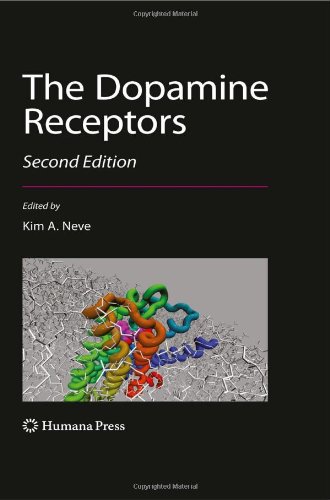

Most ebook files are in PDF format, so you can easily read them using various software such as Foxit Reader or directly on the Google Chrome browser.
Some ebook files are released by publishers in other formats such as .awz, .mobi, .epub, .fb2, etc. You may need to install specific software to read these formats on mobile/PC, such as Calibre.
Please read the tutorial at this link. https://ebooknice.com/page/post?id=faq
We offer FREE conversion to the popular formats you request; however, this may take some time. Therefore, right after payment, please email us, and we will try to provide the service as quickly as possible.
For some exceptional file formats or broken links (if any), please refrain from opening any disputes. Instead, email us first, and we will try to assist within a maximum of 6 hours.
EbookNice Team

Status:
Available0.0
0 reviewsDopamine receptors are among the most validated drug targets for neuropsychiatric disorders such as schizophrenia and Parkinson’s disease, and are potential targets for other disorders such as substance abuse, depression, Tourette’s syndrome, and attention deficit hyperactivity disorder. The new knowledge brought from the creation and characterization of mice deficient in each of the subtypes and the development of increasingly subtype-selective agonists and antagonists has fueled many of the chapters new to this second edition, with the use of knock-out mice and subtype-selective drugs meriting discussion in stand-alone chapters. The field of G protein-coupled receptors has also advanced significantly since the first edition, with a model of GPCR signaling based on linear, compartmentalized pathways having been replaced by a more complex, richer model in which neurotransmitter effects are mediated by a signalplex composed of numerous signaling proteins, including multiple GPCRs, other types of receptors, such as ionotropic receptors, accessory and scaffolding proteins, and effectors. This second edition of Dopamine Receptors will be of interest to neurobiologists, pharmacologists and molecular biologists who study the brain, as well as neurologists working on psychiatric diseases.